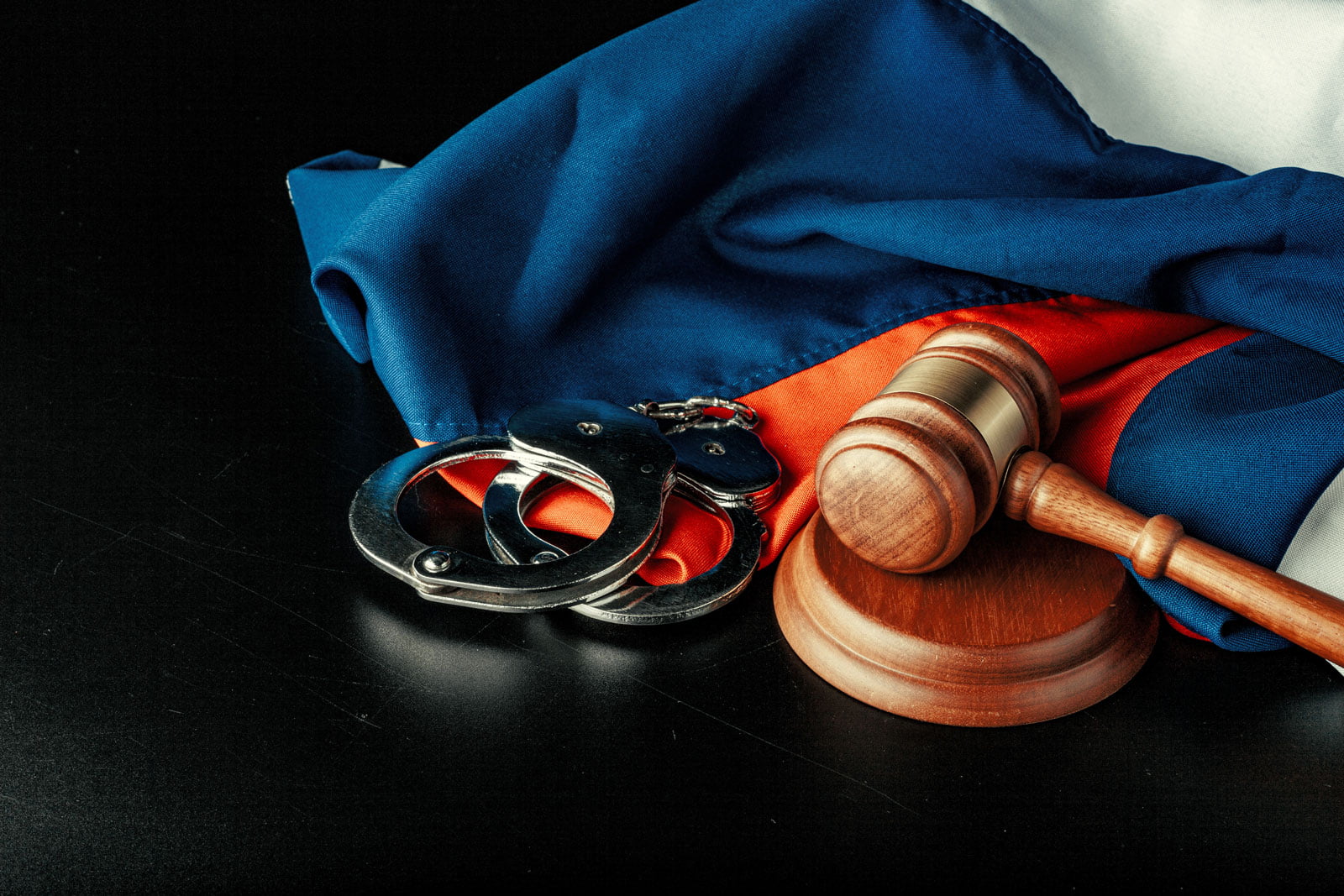Types of felonies in Washington can vary widely, depending on the severity of the crime and the circumstances surrounding it. Understanding felony laws in Washington, how they are categorized, and the potential penalties can be crucial for anyone seeking clarity on the Washington criminal code. Below is a detailed breakdown of different types of felonies in Washington state, felony classifications Washington residents need to know, and how BFQ Law Washington can help.
Table of Contents
- Introduction
- Felony vs. Misdemeanor in Washington
- Felony Classifications in Washington
- Felony Degrees in Washington
- Felony Sentencing Guidelines in Washington
- Felony Penalties and Sentencing
- Washington Felony Crime Examples
- BFQ Law Washington
- FAQs
1. Introduction
Felony offenses Washington residents may encounter are governed by state felony laws, which are part of the broader Washington criminal code. These laws outline the different types of felonies in Washington state and dictate how felonies are categorized in Washington. The Washington legal system treats felonies much more seriously than misdemeanors, imposing stricter punishments and more extended sentences for a felony record Washington offenders might carry.
Understanding felony vs misdemeanor Washington definitions is important for both legal professionals and the public. This blog post explores the felony crime categories Washington utilizes, including the various felony classifications Washington courts employ to determine penalties, potential sentencing, and the differences among them.
2. Felony vs. Misdemeanor in Washington
A foundational element of understanding the Washington legal system is knowing the key differences between a felony and a misdemeanor. While any criminal offenses in Washington can lead to consequences, felonies are considered more severe violations of the law.
- Nature of the Crime: Felonies typically involve serious harm or significant property loss. Misdemeanors tend to be less severe crimes, such as minor theft or disorderly conduct.
- Penalties: Felony punishment Washington courts impose can include lengthy incarceration, hefty fines, or both. Misdemeanors usually involve shorter jail sentences (often less than one year) and lower fines.
- Impact on Future: A felony conviction leads to a more significant criminal record Washington offenders must contend with, potentially impacting voting rights, gun ownership, and employment opportunities.
When considering felony vs misdemeanor laws in Washington, it’s crucial to understand that felonies require a more complex defense strategy, often involving felony criminal defense professionals. Moreover, Washington criminal charges at the felony level come with stricter conditions for bail, plea bargains, and potential restitution.
3. Felony Classifications in Washington
One of the primary queries people have is, “What are the felony classifications in Washington?” The state categorizes felony laws in Washington into several classes based on severity and potential punishment. Understanding felony classifications Washington courts rely on can help individuals and their legal counsel evaluate case strategies.
- Class A Felonies: These crimes include severe offenses such as first-degree murder or first-degree assault. Penalties for a Class A felony can involve life imprisonment and substantial fines.
- Class B Felonies: While slightly less serious than Class A, these crimes can still result in extended prison time and heavy fines. Examples might include certain degrees of burglary or assault.
- Class C Felonies: These are considered the least severe category of felonies but still carry substantial legal consequences, including possible prison time and fines.
The different types of felonies in Washington state reflect how felonies are categorized in Washington: Class A, Class B, and Class C. Each class bears its own sentencing guidelines, fines, and the length of incarceration, which we will explore more in the sections on felony degrees in Washington and felony sentencing guidelines in Washington.
4. Felony Degrees in Washington
When discussing “felony degrees in Washington,” it’s essential to note that the term “degree” often refers to levels of severity within a specific crime type. For instance, assault in the first degree carries heavier penalties than assault in the second or third degree. This sub-classification system further refines the basic felony crime categories Washington recognizes.
- First-Degree Felony: Typically the most severe iteration of a crime (e.g., first-degree assault, first-degree murder). These cases almost always result in the harshest sentencing.
- Second-Degree Felony: Less severe than first-degree but can still lead to significant prison terms.
- Third-Degree Felony: Generally involves crimes with a lower level of harm or intent, yet still qualifies as a serious offense under state felony laws.
Washington state felony sentencing acknowledges these degrees in conjunction with the broader classification system. Understanding the interplay between felony classifications Washington sets forth and the degrees within specific crimes helps clarify potential sentences.
5. Felony Sentencing Guidelines in Washington
When considering felony sentencing guidelines in Washington, several factors come into play, including the offender’s criminal history, the nature of the crime, and any aggravating or mitigating circumstances. These guidelines are part of the state’s effort to standardize punishments while allowing for judicial discretion.
- Sentencing Range: Washington state felony sentencing follows established ranges for each felony classification. Judges refer to these ranges when determining the length and conditions of the sentence.
- Mandatory Minimums: Some crimes come with mandatory minimum sentences, limiting a judge’s discretion to reduce prison time.
- Aggravating Factors: Factors such as use of a deadly weapon, involvement of a minor, or extensive victim harm can extend sentences.
- Mitigating Factors: Lesser harm, cooperation with law enforcement, or no prior criminal offenses in Washington can reduce sentencing length.
A key aspect of understanding felony laws in Washington is recognizing how these guidelines apply to various felony classifications and degrees, ensuring penalties fit the severity of the crime. For anyone facing felony charges Washington courts may impose, it’s essential to consult legal professionals to navigate the complexities of felony sentencing guidelines.
6. Felony Penalties and Sentencing
The question of “felony penalties and sentencing in Washington” is central to anyone looking to gain insight into felony punishment Washington courts may administer. Washington felony penalties vary widely, from fines and probation to long-term incarceration.
- Incarceration: Prison sentences for felonies can range from a year to life, depending on the severity and classification of the crime.
- Fines: Washington felony penalties often involve significant monetary fines, which can go up to tens of thousands of dollars based on the classification and specific offense.
- Restitution: Courts may require felons to compensate victims for financial losses or damages related to the crime.
- Probation and Parole: In some cases, offenders can receive supervised release, which may include strict conditions such as regular check-ins with a parole officer.
Understanding felony penalties and sentencing in Washington is key to navigating the criminal justice Washington system effectively. Whether you’re dealing with Washington criminal charges for a Class A, B, or C felony, it’s imperative to know your rights and the possible outcomes.
7. Washington Felony Crime Examples
When exploring Washington felony crime examples, it’s helpful to look at offenses that commonly appear in felony convictions Washington courts handle. By learning about specific crimes, you gain a clearer sense of the Washington felony crime categories and sentencing norms.
- Violent Crimes: Murder, manslaughter, assault, and robbery often fall under Class A or B felonies, reflecting the significant harm involved.
- Property Crimes: Burglary, large-scale theft, and vandalism can be charged as Class B or C felonies, depending on the damage or value of stolen property.
- Drug Offenses: High-level drug possession, manufacturing, or distribution can lead to serious felony charges Washington prosecutors enforce.
- White-Collar Crimes: Fraud, embezzlement, and money laundering might be deemed felonies, particularly when large sums of money are at stake.
These examples highlight the breadth of criminal offenses in Washington that fall under felony classifications. State felony laws ensure that the punishment aligns with the severity, whether it is a violent offense or a substantial property crime.
8. BFQ Law Washington
BFQ Law Washington is a law firm that comprehensively understands the state felony laws and the complexities surrounding Washington state felony sentencing. With a team of highly trained attorneys, paralegals, and professionals, BFQ Law Washington provides guidance on civil litigation, personal injury, family law, wills trusts & estates, settlement/dispute, and mediation.
BFQ Washington law firm is located at 900 Washington Street, Suite 117, Vancouver, WA 98660. For inquiries, you can call (564) 888-4452 or send an email to WA@BFQLaw.com. The practice areas at BFQ Law Washington also encompass addressing legal concerns related to felony charges Washington residents might face and other aspects of felony criminal defense.
Whether you need help understanding how felonies are categorized in Washington, navigating felony sentencing guidelines, or seeking information on criminal justice Washington processes, BFQ Law Washington can offer insights and professional assistance.
9. FAQs – Types of felonies in Washington
A: Understanding felony vs misdemeanor laws in Washington is crucial. Generally, if the offense carries a penalty of more than one year in prison, it is classified as a felony.
A: Expunging or vacating a felony record Washington is possible in certain circumstances, especially for nonviolent offenses and if a significant period has passed without new convictions. Consult a legal professional for specific eligibility criteria.
A: Yes. Some felonies, especially violent crimes or those involving firearms, carry mandatory minimum prison terms under state felony laws.
A: Reviewing the felony sentencing guidelines and Washington state felony sentencing statutes can be complex. It’s wise to seek advice from legal professionals familiar with felony classifications Washington courts apply.
A: What are the felony classifications in Washington? Class A felonies are the most severe (e.g., murder), Class B felonies are moderately severe (e.g., certain assault cases), and Class C felonies are still significant but less severe (e.g., certain theft offenses).






